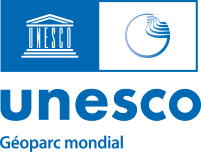The Park's territory is particularly concerned by the problem of "empty town centres". Decline in local economic activity, demographic decline, aging of the population, deterioration of the built heritage and public spaces and an increase in vacant housing and commercial premises... are all factors that contribute to the lack of attractiveness of town centres. Conversely, urban sprawl continues with new bungalow housing estates, vectors of the depreciation of landscapes and soil artificialisation.
The revitalisation of town centres involves many issues:
• Improvement of the living environment and public spaces;
• Boosting the local economic and social life;
• Limiting the consumption of agricultural and natural land by renewing the existing built-up area;
• Enhancement and diversification of the landscape, architectural and urban heritage.
On these issues of sustainable urbanism, a large part is given over to the participation and awareness of the residents.
The "Small Towns of Tomorrow" programme
Supported by the government, the "Small towns of Tomorrow" programme aims to strengthen the resources of elected officials in communes with fewer than 20,000 residents who have central functions in their catchment area, in order to build and implement their territorial projects. In particular, it allows the winning communes to benefit from co-financing for the creation of project manager positions dedicated to steering the overall revitalisation project for the entire duration of the programme.
By sharing this position with the winning commune of Carrouges since mid-October, the Park is committed to public policies whose objective is to revitalise small rural towns.
Convinced that the development of the territory relies on local stakeholders and more-so the residents, the Park also supports the commune of Carrouges in the revitalisation of its town centre using various citizen mobilisation methods (information surgeries, questionnaires, idea-maps, urban walks, animations with students, etc.).
At the same time, the Park is networking the "Small Towns of Tomorrow" project leaders in the communes within its perimeter, which extends across 4 departments. The aim is to present them with the Park's practical tools from which these communes can benefit and to encourage the sharing of experience on territorial consultation tools.
Towards a requalification of public spaces in town centres
The Park provides engineering support to the Park's communes involved in a revitalisation process. However, the requalification of public spaces is often the prerequisite for the overall improvement of the living environment. It is in this context that the Park proposes to deepen the pre-operational urban studies through participatory and innovative approaches to transitional urban planning1.
1 Transitional urbanism refers to urban planning practices that temporarily occupy public or private places, usually as a precursor to permanent development.
"Rethinking our streets and squares" is a call for projects coordinated by the Park. By 2023-2024, “Parklets” will be available to the Park's communes that are facing the challenge of revitalising public spaces for active mobility. Parklets are street furniture modules that are temporarily placed in parking spaces. They form places to stop, sit and exchange, supporting many activities (outdoor seating area, picnic, mini-garden, bicycle parking, open stage, exhibition space, etc.).
In keeping with the Park(ing) Day operation initially developed in San Francisco, these Parklets aim to herald the requalification of public spaces by considering the reconversion of parking spaces that generally catalyse the concerns of users, residents, shopkeepers and elected officials, whilst inspiring them with new uses. This will result in shared and peaceful public spaces that will be more convivial.




